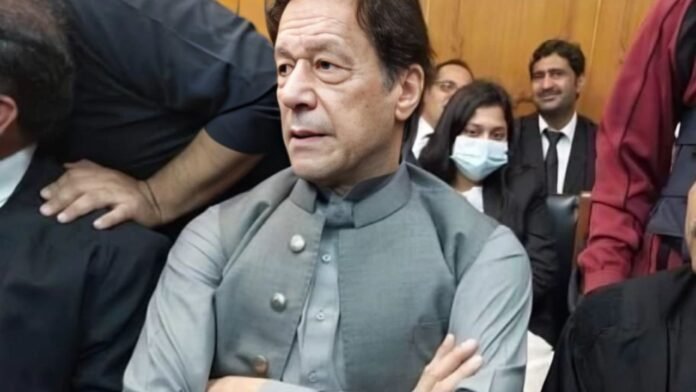Islamabad: NAB files plea against IHC’s bail of PTI founder Imran Khan’s in £190mn reference case
The National Accountability Bureau (NAB) has approached the Supreme Court by filing an appeal to cancel the bail granted to Pakistan Tehreek-e-Insaf (PTI) founder Imran Khan in a high-profile £190 million case. This comes after the Islamabad High Court (IHC) granted Imran Khan bail on May 15, which the NAB says is against the law.
Chairman NAB has filed a petition challenging the decision of Islamabad High Court in the Supreme Court. According to the petition, the Islamabad High Court granted Imran Khan’s bail, disregarding factual and legal considerations of the case. NAB alleges that the court ignored key evidence and legal precedents in making its decision. The petition argues that this verdict is not only against the law but also creates a dangerous precedent for future cases involving corruption-accused persons holding public office at higher levels, like the PTI Founder.
The appeal requests specifically canceling IHC’s ruling but is not limited thereon as NAB believes giving such relief to Imran Khan will discourage efforts towards financial accountability among influential people, especially those who abuse their positions for personal gains or benefit others unlawfully; hence, they should be brought before a justice without any partiality being shown towards them because doing. This would further undermine the rule of law within the country, besides tarnishing its image internationally. Hence, fairness must always prevail regardless of one’s status, whether influential or not.
On surety bonds worth Rs1 million, IHC granted bail to Mr Khan on May 15, following rejection by an accountability court earlier than this when he approached Islamabad High Court for relief. Nab chief said this was a landmark judgment during an ongoing legal battle around the PTI leader. The reference involves the alleged misappropriation of £190m, which is why it attracted so much attention. Now that accountability institutions are functioning correctly, there is a demand for neat and clean elections. Unfortunately, some still adhere to old practices.
The accountability court’s initial rejection of the bail plea was based on the gravity of the allegations and evidence cited. However, the Islamabad High Court found sufficient grounds to grant bail. This difference in judicial decisions has led to an appeal before the Supreme Court. Through its petition, Nab argues that not enough was taken into account during the decision-making process, especially. When it came down to considering the overall scope of both sides’ legal arguments alongside presented facts.
Fairness can only be achieved if all these aspects are appropriately reviewed again. By the Supreme Court so that justice prevails at last, even if principles of fairness. Somewhere along the line, accountability must compromise because high-profile cases like these always set precedents for future corruption litigation. Within public offices where people misuse their authority positions for personal gains or to benefit others unlawfully.
Therefore, it is essential to note that NAB’s plea carries broader implications beyond Imran Khan’s case alone. The question of whether courts should grant or deny bail in corruption cases involving influential figures like politicians has always been contentious. As a result, stakeholders are likely to debate this issue until they establish clear guidelines on how courts at various levels nationwide should handle similar applications. More so considering anti-corruption is one of the critical priorities under the current government. Which came into power promising clean governance besides fighting against graft no matter. Who may have committed it regardless of whether they belong among its supporters or not because doing so would amount to perpetuating cultural impunity amongst leaders, thereby undermining public trust further?
Pakistan Court’s ruling in response to NAB’s petition will demonstrate Pakistan’s rule of law and accountant’s system. This can affect other cases, such as those accusing high-ranking personalities of corruption. While prosecuting Imran Khan at present and even later on.
The rest of us are waiting with bated breath for every twist in this courtroom saga as we watch it play out. But what about those who have taken positions within these hallowed halls? How do they feel as events unfold around them daily – knowing full well what is at stake here?


